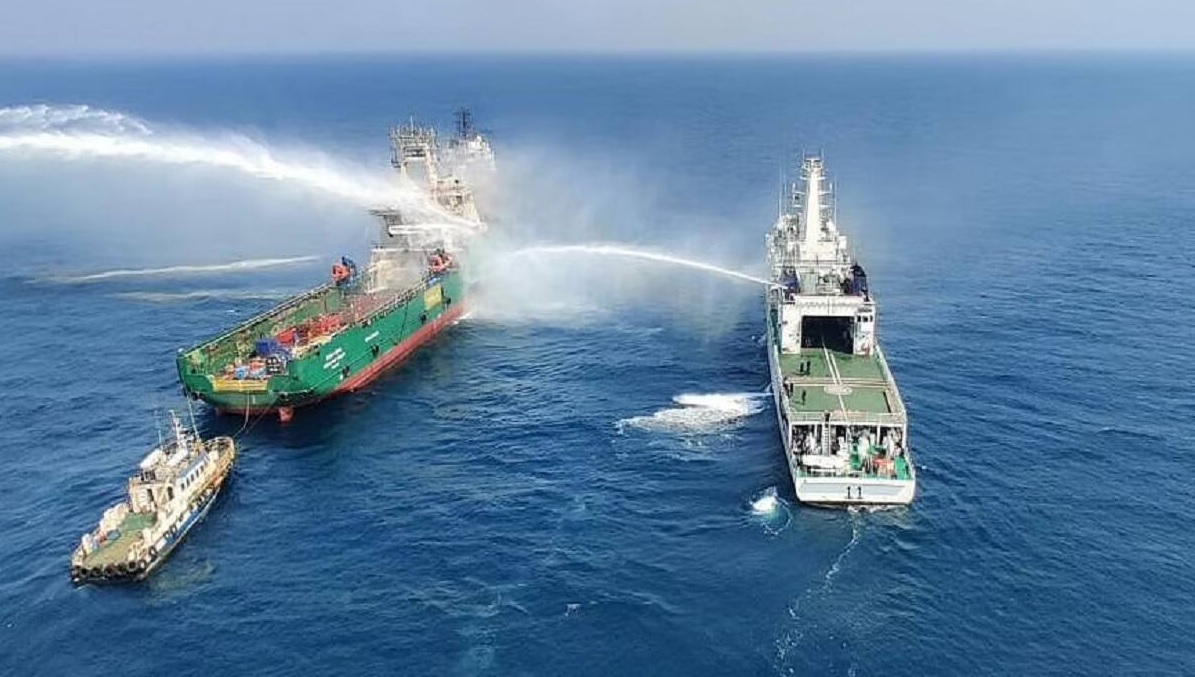Escalating Red Sea Attacks Cause Triple Surge in Transportation Expenses, Impacting India

Defense News ,Red Sea :- Yemeni Houthi rebels are causing trouble in the shipping world, affecting companies in the West and now reaching Indian shores. After the United States and the United Kingdom responded to Houthi attacks on commercial ships in the Red Sea, companies are feeling the impact on their supply chains.
The attacks began when tensions rose in the Israel-Hamas conflict in October. The Houthi rebels, supporting Hamas, started targeting merchant ships passing through Yemen to or from Egypt's Suez Canal.
As a result, companies are now opting for a longer but safer route around southern Africa, increasing shipping time. Initially unaffected, Indian companies are now feeling the pinch due to the interconnected nature of global trade.
Impact on India:
Recent incidents in the Middle East have raised concerns for Indian shipping companies. RBB Ship Chartering, a company in ship chartering services, reports a significant rise in shipping costs. CEO Raajesh Bhojwani highlighted that the re-routing of shipping assets has tripled transportation costs.
The Red Sea is a crucial route for India's trade with the US East Coast, Europe, the Middle East, and Africa. The Suez Canal is vital for direct passage between Europe and Asia, making the Red Sea route essential. The alternative route through Africa adds around 30 days to travel time.
A variety of Indian exports, including steel, textiles, chemicals, vehicles, and agro-products, pass through the Red Sea route to reach Europe and the West.
Challenges for Indian Exporters:
The situation has led to a spike in insurance premiums for ships in the Red Sea, making it financially burdensome for Indian exporters. The longer route around the Cape of Good Hope increases journey time by 8-10 days, resulting in higher fuel costs. This puts Indian exporters at risk of losing competitiveness in other markets.
In 2023, global trade challenges, compounded by the Middle East situation, raised concerns for India's policymakers. A report suggests that India's total exports in FY24 could decrease by $30 billion, with an anticipated drop of 6.7%.
International Impact:
US retailer Target experienced minor disruptions in shipments from India and Pakistan, key regions for apparel manufacturing. India's proximity to Iran, a supporter of the Houthi rebels, adds significance to its role in this tense situation.
India's External Affairs Minister is expected to visit Tehran following a conversation with the US Secretary of State. The Commerce Ministry plans to strategize measures in response to the trade impact.
Shipping Statistics:
Clarkson Research Services Ltd. reported a 44% decrease in ships using the Suez Canal in early January. Major shipping corporations like Maersk are diverting ships around Africa, adding a week or two to voyages and increasing shipping, insurance, and fuel costs.
Houthi Tactics:
Houthi rebels are using drones and anti-ship missiles, even seizing an Israeli-owned ship and crew with a helicopter. Originally targeting vessels bound for or from Israel, they now threaten any vessel, including container ships and oil tankers flagged to countries like Norway and Liberia.
The situation poses challenges for global trade, prompting major corporations to adapt their shipping routes and adding complexities to the already delicate balance of international commerce.


